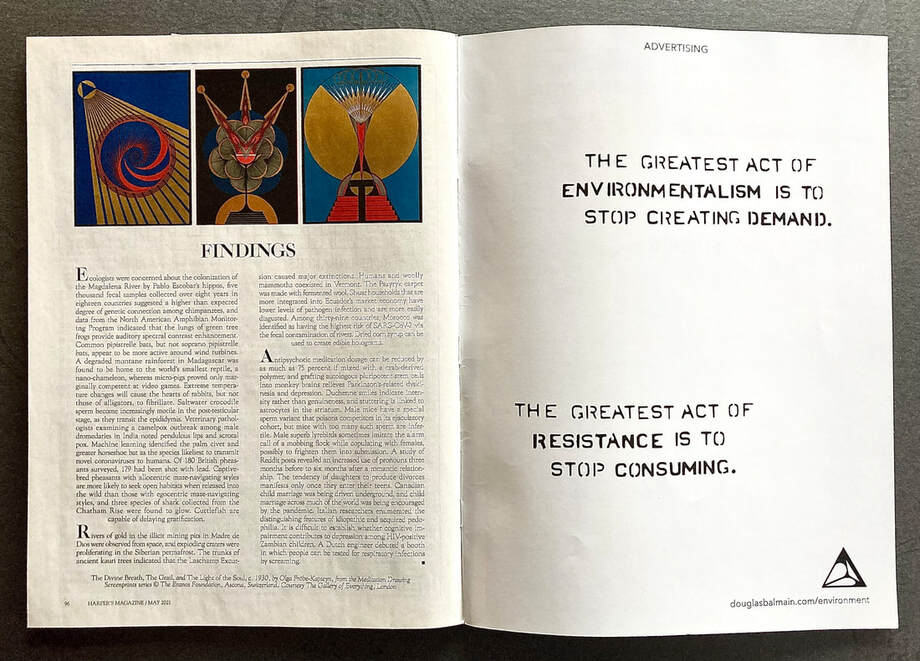Environment is an encompassing term with many contextual applications. It reaches into the entirety of our experience—every dusty, neglected corner that defines our perceptions and surroundings. Despite our constant and total immersion in the experience of our environments, environmentalism has been reduced to a reactive process—a process forced into the role of addressing damages already incurred.
Acts against the environment are not perpetrated solely by the world's uncaring, nor by the profiteers and/or misguidedly self-interested. The taxes we impose upon Nature are being levied by all of us—intentions, ideals, and political allegiances aside. The damages that environmentalism seeks to address stem from the very basis and structuring of our modern cultures and societies as a whole. Our demands of this Earth are hidden behind the most common, and passively accepted, ways in which we think, act, expend, consume, and live. To regain environmentalism as a progressive process, we must accept the work of unlearning.
We must unlearn destructive beliefs and unsustainable patterns of behavior. We must reconnect with our own power-of-intuition in spite of our society's motivations to keep us overwhelmed, over-leveraged, and distracted. Environmentalism must be restored to an intuitive practice—a way of living that honors connectedness and is intimately aware of what one gives-to and asks-of the Nature that we are from. When intuition and autonomy-of-Self are regained, environmentalism will cease to be a reaction, a battle, or series of concessions. It will simply become the way. To care for Nature is to care for yourself, which in turn is to care for those you love and wish to protect.
Acts against the environment are not perpetrated solely by the world's uncaring, nor by the profiteers and/or misguidedly self-interested. The taxes we impose upon Nature are being levied by all of us—intentions, ideals, and political allegiances aside. The damages that environmentalism seeks to address stem from the very basis and structuring of our modern cultures and societies as a whole. Our demands of this Earth are hidden behind the most common, and passively accepted, ways in which we think, act, expend, consume, and live. To regain environmentalism as a progressive process, we must accept the work of unlearning.
We must unlearn destructive beliefs and unsustainable patterns of behavior. We must reconnect with our own power-of-intuition in spite of our society's motivations to keep us overwhelmed, over-leveraged, and distracted. Environmentalism must be restored to an intuitive practice—a way of living that honors connectedness and is intimately aware of what one gives-to and asks-of the Nature that we are from. When intuition and autonomy-of-Self are regained, environmentalism will cease to be a reaction, a battle, or series of concessions. It will simply become the way. To care for Nature is to care for yourself, which in turn is to care for those you love and wish to protect.

